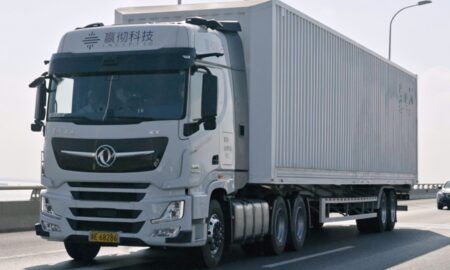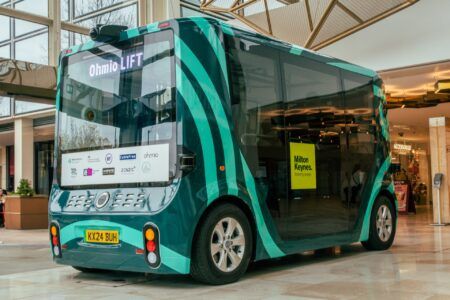The £5m (US$6.4m) UK government co-funded Venturer driverless car project has released its final report, detailing key learnings from its trials that were based in the West of England and concluded in June 2018.
The three-year research and development project explored the barriers to the adoption of connected and autonomous vehicles (CAV) in the UK and how best they could be overcome. The project consortium, which included a wide-ranging mix of large and small businesses, universities and local authorities, adopted a uniquely multidisciplinary and user-led approach, focusing on the safe trialling and testing of CAV technology, engagement with the public, and a review of the regulatory environment. More than 200 participants took part in the Venturer trials, which established a safe testing methodology using both simulated and controlled road network environments.
Key findings from the project include:
The experiments in both the Venturer simulator and the Wildcat test vehicle revealed participant responses were comparable between both simulated and controlled road network environments;
Planned handover between autonomous driving systems and the human driver, as would be required to achieve SAE Level 3 vehicle autonomy, is achievable in optimum conditions, but not necessarily desirable in safety terms;
Participants have greater trust in the behaviors of autonomous vehicles when they demonstrate more cautious vehicle behavior than the average human driver;
Participants did not show significant differences in trust ratings depending on whether they experienced the trial scenarios in the role of a cyclist, driver or pedestrian, indicating that there is no particular need to differentiate messaging around CAVs for different audiences;
Key insurance and legal recommendations for insurers, the CAV industry and regulators arising from the deep insight developed through Venturer include considerations such as: encouragement of clarity around legal and insurance definitions of automated vehicles; and establishment of minimum standards for the capture, retention and sharing of CAV data for incident investigation and analysis.
Venturer project manager and transport planning practice manager at Atkins, Carolyn Mitchell, said, “One of the first research and development projects to explore the future of connected and autonomous vehicles on the UK road network, Venturer’s findings challenge the status quo, shining a spotlight on what users want from driverless cars, how they can be safely implemented, and what government and insurers need to do to make sure the UK is CAV-ready.”
The success of the project is being continued by the Venturer Alliance, which will use the program’s acquired expertise and capabilities to continue to support the ongoing design, trialling, integration and deployment of CAVs on the transport network, and to manage the impacts on society and infrastructure.
Nathan Marsh, chairman of the Alliance and intelligent mobility director at Atkins, commented, “This comprehensive final report from the Venturer project contains important findings that will help us all to progress from research into the implementation, integration and normalization of CAVs in the UK. The Alliance is committed to working in collaboration to progress these learnings, and we are incredibly proud to lead this initiative.”




